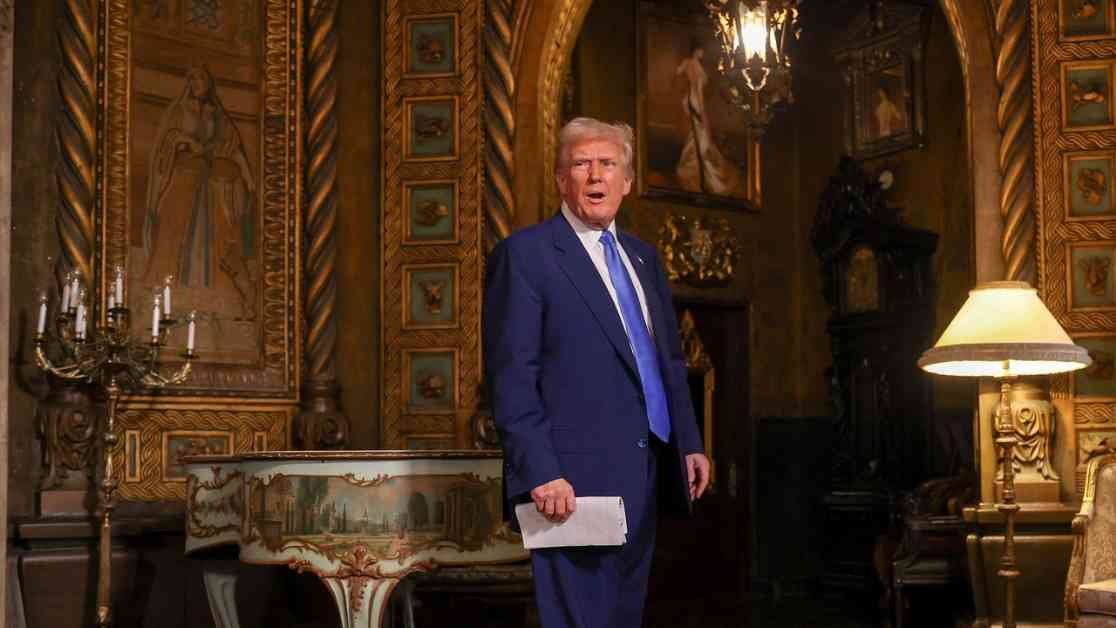In the heart of Lexington, Massachusetts, the echoes of revolutionary spirits still linger. As a local guide, I once donned a tricorne hat to share the tale of the town’s brave townspeople who made their stand against the British in 1775. The sacrifices made that fateful April morning in pursuit of self-rule resonated through the centuries, embodying the essence of American liberty. The spirit of democracy, of a nation free from monarchic rule, was woven into the very fabric of our nation’s founding principles.
Recently, a new king emerged on the scene, but not in the traditional sense. Donald Trump, the former President, took to social media to declare himself a king, challenging the core tenets of American democracy. His proclamation of “Long Live the King” sent shockwaves across the nation, prompting a reckoning with our historical aversion to monarchy. The imagery of regal authority, epitomized by Trump’s affinity for crowns and thrones, raised concerns about the erosion of democratic norms.
Trump’s Regal Aspirations
Throughout his presidency, Trump flirted with the idea of extending his rule beyond the constitutional limits. His actions, such as appointing Elon Musk as his regent and issuing unilateral decrees, hinted at a shift from governance to autocracy. The symbolism of Trump’s self-coronation, coupled with his disdain for established protocols, evoked comparisons to historical despots. Despite the checks and balances in place, Trump’s audacious power grabs posed a formidable challenge to the democratic fabric of the nation.
Resistance and Resilience
In the face of Trump’s monarchic ambitions, a wave of resistance began to swell. Across the country, citizens gathered on Presidents’ Day to protest against his authoritarian overreach. Signs emblazoned with “No Kings” and excerpts from the Gettysburg Address underscored the enduring commitment to government by the people, for the people. Yet, the growing influence of evangelical supporters, who viewed Trump as a divine ruler, added a complex layer to the political landscape. The clash between those advocating for democratic ideals and those embracing regal authority set the stage for a battle over the soul of the nation.
As the world watched, the United States’ foreign policy veered towards alliances with monarchies, raising questions about the nation’s commitment to democratic values. The juxtaposition of abandoning Ukraine and cozying up to autocratic regimes underscored the global ramifications of Trump’s regal posturing. While some nations, like the United Kingdom, reaffirmed their support for democratic governance, others seemed swayed by the allure of monarchical power. The shifting alliances and allegiances reflected a broader struggle between democracy and autocracy in the international arena.
Reflecting on these tumultuous times, the words of our forefathers resonate with renewed urgency. The legacy of those who fought for liberty, who rejected the yoke of kings, beckons us to uphold the principles that define our nation. As we navigate the turbulent waters of contemporary politics, the echoes of Lexington’s past remind us of the enduring quest for freedom and self-determination. In the words of Ben Franklin, we must remember that sacrificing essential liberty for temporary safety is a perilous bargain. As the price of eggs soars and the specter of authoritarianism looms, the choice between kings and citizens lies at the heart of America’s ongoing narrative. And it is up to each of us to determine the next chapter in our nation’s story.












